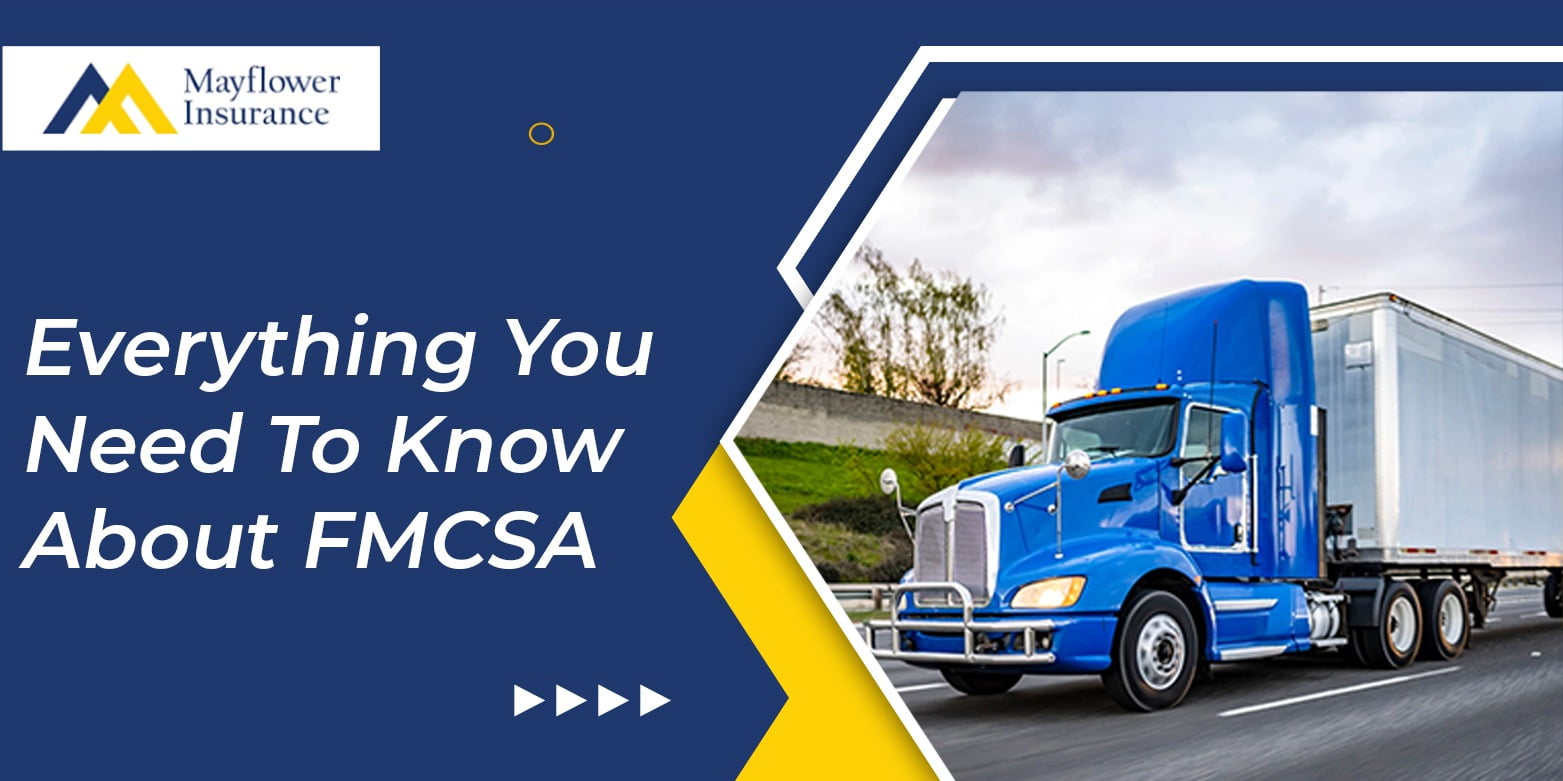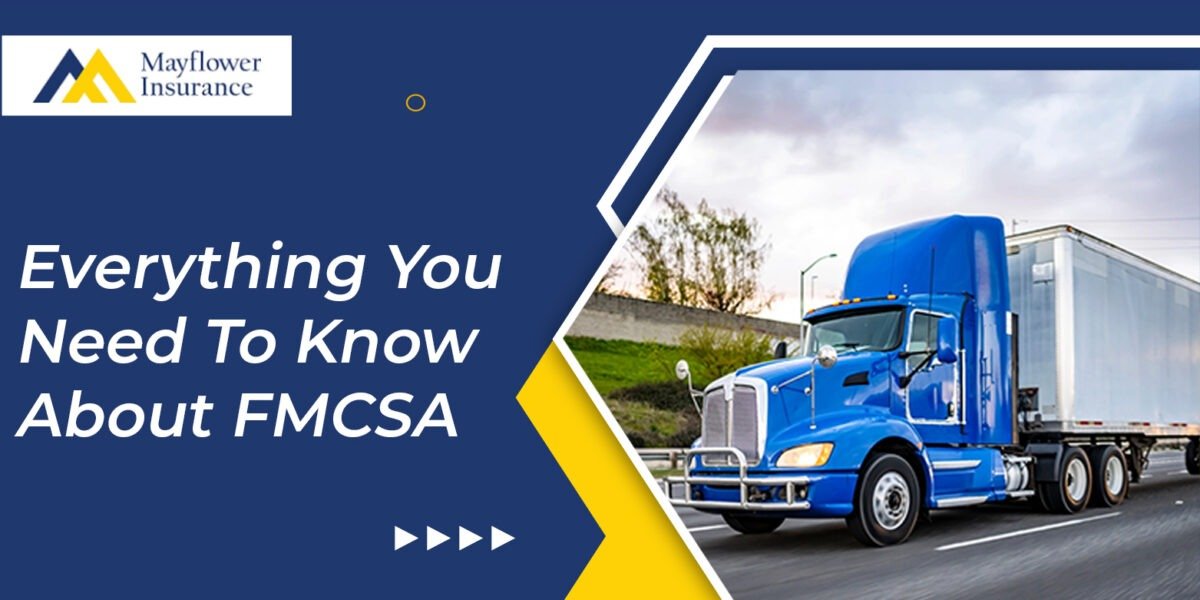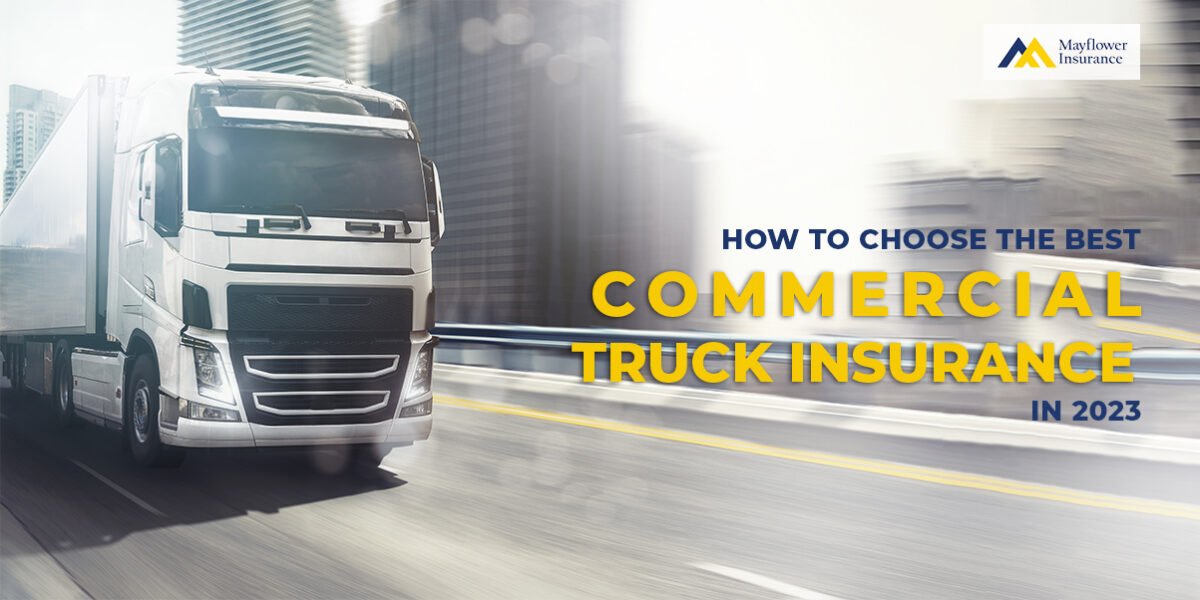Everything You Need To Know About FMCSA!

What Goals Are Focused By FMCSA?
- Smooth Regulation of Trucks & Buses on the Road avoiding fatalities, poor collisions, accidents & injuries. It enforces regulations on commercial carrier vehicles to maintain its goal.
- Impose safety awareness for all trucking sources including high-risk carriers.
- Engage with Federal, local, or state agencies for spreading safety measure efforts on roads to avoid accidents.
- Enhance the productivity & maintenance of operating vehicles and running standards.
What Are The Main Functions Of FMCSA?
Commercial Driver’s Standards
FMCSA design & maintains standards for qualified drivers through testing & license process to regulate the smooth transportation system on roads.Data and Analysis
It tracks & analyzes the past year’s records to make amendments to existing instructions. Thus, it helps to improve road safety & transportation system.Regulate Compliance and Enforcement
It imposes regulations for restricted areas or highways for high-risk carriers to avoid any mishappening. At the same time, It also enforces compliance for cargo-based driving.Research and Technology
It works on improving the operating vehicles and introducing better technology with research for enhancing & well-maintaining transport commodities.Safety Assistance
FMCSA provides financial support to improve inspection for road safety. The approach & measures for road safety & inspection also improve the transportation system.Other Activities
It connects with multiple international organizations to improve their Motor Carrier practices. In short, it remains active in introducing more better ways in regular practice to make the transportation system dynamic as per globalization, road safety & transportation needs.Who Are Supposed To Register With FMCSA?
If you search for DOT Number, MC Number, or other documents to fulfill DOT compliance. Or if your looking to engage with the truck company, you must also be aware of the FMCSA registration eligibility criteria. In addition, which truck operators are supposed to register under FMCSA.
Since not every truck or motor carrier needs to register with FMCSA.There are two factors on which it depends.
Truck Type-It depends on the Motor Carrier vehicle type which can be a tow truck,semi-truck, trailer truck, etc.
Transportation Type-It consists of the trucking category based on cargo goods. It can be Hazmat, Flatbed, Reefer, Dry-Van trucking, FTL, LTL, etc.
- Transport More Than 10,000 Ponds weight.
- Operate Interstate commercial traveling
- Runs DOT placard Hazmat trucking
- Transportation of 8-14 passengers for commercial purposes.
- Transportation of 15 passengers or more for non-commercial purposes.
FMCSA Compliance Enrollment Process
- It must carry EIN/SSN, Dun/Bradstreet number(if available), and Organisation officers’ titles.
- Financial Responsibility enrolled with FMSCA(in case required)
- Process Agent Filling (if required)
What Are Conditions For Having Operating Authority Under FMCSA?
- Transporting Commercial Vehicles Interstate
- Transporting Federally regulated transports Interstate(commercial purpose)
What Transporting Components Are Required Under FMCSA Compliance?
Driver Qualification/Eligibility
There are specific standards specified for qualified drivers to be eligible for commercial driving. These standards come under the CFR (Code of Federal Regulations)-Part 391.- List of active drivers with all details including-Name, DOB, Hired Date, Licence number & State.
- Driver Hiring conditions include a fully completed DOT application, Driver’s previous record, and Driving, medical & drug test reports.
- Driver’s DQ File including DOT application, MVR, COV (past 3 years record).
DOT Alcohol & Controlled Substance Testing
These tests deal with CDL drivers, alcohol testing programs, service hours, duty status, etc. In addition, it also includes a record of driver working regulations, vehicle lists, and individual vehicle details.DOT Annual Inspections
These records deal with mandatory inspection records to be carried out by the DOT agencies. It demands desired records for every Test for CMV tested by trained & certified inspectors. Therefore, FMCSA compliance deals with inspected records which a carrier must have through the documents.Hazmat Driving Standards
Haxmat driving standards are wide under FMCSA compliance which can be shipping hours, type of hazmat, amount of hazmat driving area, and many other associated documents. They are- Identification number under Hazardous Materials Table(HMT)
- Shipping name & hazard class identified under HMT
- Hazmat Driving material quantity.
- Hazmat category Packages
- Emergency report of every hazmat transportation.
Insurance Records
This is also a mandatory thing to have for a truck company. To keep the truck agency’s potential for compensation for any loss, injury, or damage at their fault, they must hold insurance, surety bonds, or written authorization as per FMCSA standards. Therefore, Financial assistance of a certain amount becomes necessary as of the transportation nature.Accident Records
As per FMCSA standards, transportation regulations become more stable when accident records are maintained and worked on for improvement and recovery. Therefore, its compliance requires documents for all accident details data, name, place, or other components with the concerned documents.FMCSA compliance makes every component of the transportation system more advanced. The formal process involves components like driver eligibility, testing, regulating different transportation, etc. Strong inspection for documents, driver duties medical health, and drug testing goes on. In addition to vehicle inspection, insurance, finance potential, and other components by the secretary of Transportation criteria. Thus, All these methods create a rigid structure of the transportation system.How do We Support The Truck Agencies Fulfilling DOT or FMCSA compliance?
Many truck organizations look for the most affordable commercial truck insurance plans. Since this is not just mandatory as per law or FMCSA compliance, but also for business purposes & engaging with better cargo companies. Therefore we support our policies in fulfilling mandatory and additional coverages. They are auto liability, non-trucking, cargo, bobtail, high-risk trucking, and so on. Therefore, A truck company can remain 100% satisfied with Insurance enrollment & claim support through our experienced agents.



